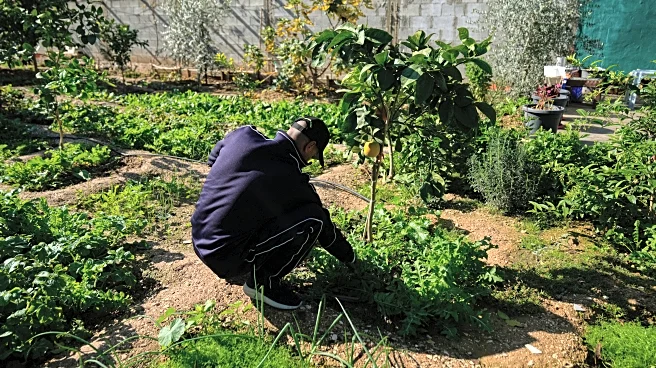What's Happening?
Circana's recent report indicates a significant shift in wellness trends, moving away from competitive and performance-driven activities towards self-care and slow living. The report highlights the growing popularity of functional skincare, sleep rituals, and the #slowliving movement, which emphasizes calm mornings and comfort rituals. The wellness industry is seeing increased sales in home comfort items like air purifiers and vaporizers, as well as small appliances such as blenders. This shift is partly driven by a return to home-centric behaviors observed during the pandemic. Additionally, the report notes a rise in adult engagement with toys and games like Mahjong, which offer cognitive and social benefits.
Why It's Important?
The shift towards self-care and slow living reflects broader societal changes in how wellness is perceived and practiced. This trend could impact various industries, including beauty, home appliances, and leisure activities, as consumers prioritize products and services that enhance personal well-being. The emphasis on functional skincare and emotional-companion tech suggests a growing market for products that offer therapeutic benefits. Companies that adapt to these changing consumer preferences may see increased demand and customer loyalty. Furthermore, the focus on self-care could lead to improved mental health outcomes, as individuals seek balance and joy in everyday activities.
What's Next?
As the wellness industry continues to evolve, businesses may need to innovate and expand their offerings to meet the demand for self-care and slow living products. Companies could explore partnerships with wellness influencers and leverage social media to promote new trends. Additionally, there may be opportunities for growth in the home appliance sector, as consumers invest in products that support a home-centric lifestyle. The rise of adult engagement with toys and games could lead to new product lines and marketing strategies targeting this demographic.
Beyond the Headlines
The shift towards self-care and slow living may have deeper implications for societal values and cultural norms. As individuals prioritize personal well-being over performance, there could be a reevaluation of success and productivity metrics. This trend might also influence workplace policies, encouraging employers to support employee wellness through flexible schedules and mental health resources. The focus on self-care could foster a more inclusive and empathetic society, where individuals are encouraged to prioritize their health and happiness.












